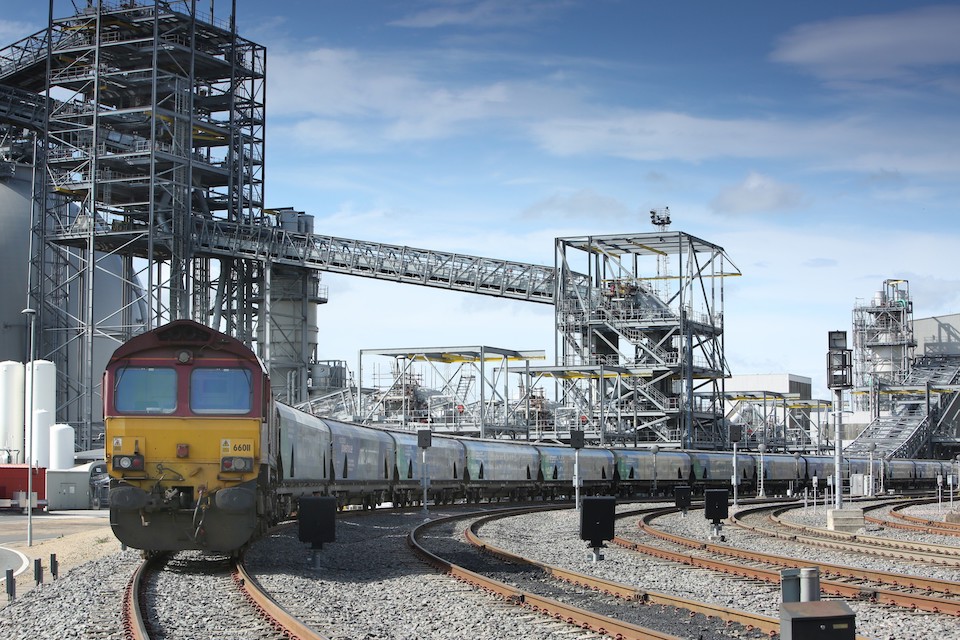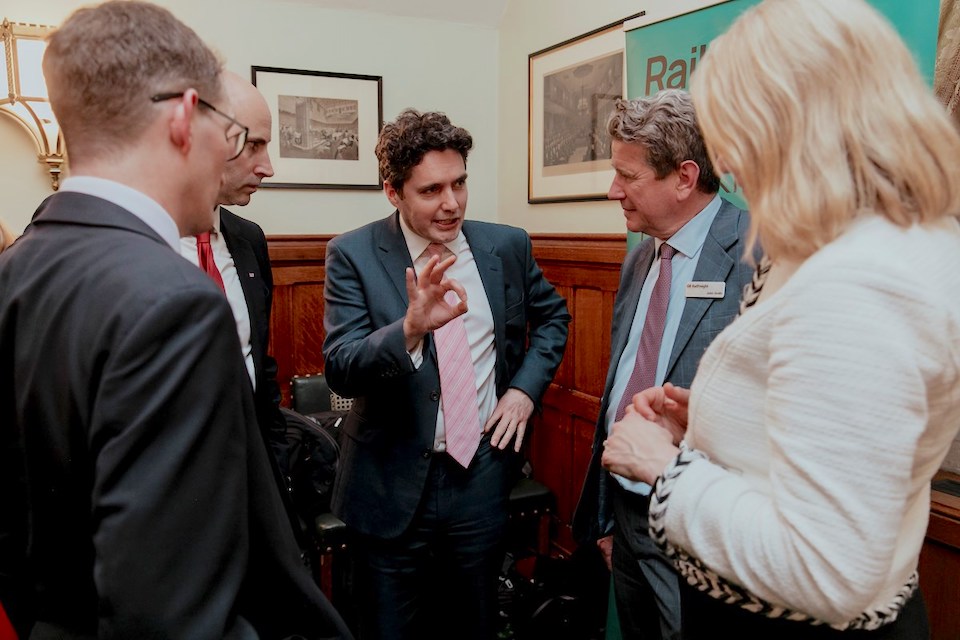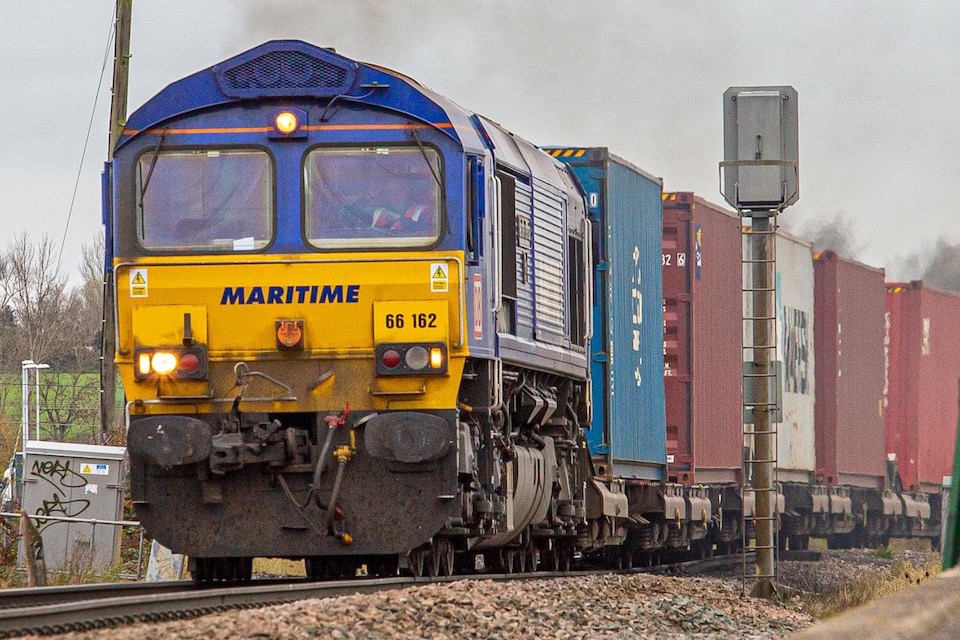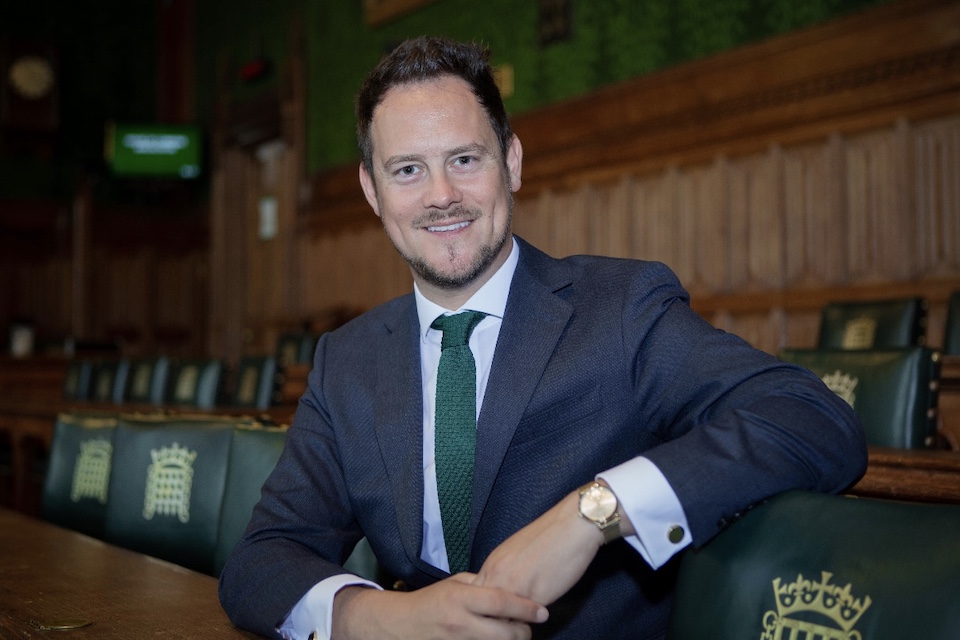Manifesto for Rail to be keynote at George Bradshaw Address

Prioritise getting freight off roads and onto rail is the unsurprising manifesto pledge from Rail Partners, the influential policy and lobby group, representing operators in the freight and passenger sectors in the UK rail industry. They have published a new document, “Manifesto for Rail – A five-point plan to create a thriving railway”. The manifesto is set to be the major debating point at this year’s George Bradshaw Address, on Tuesday, 20 February, in London.
They may not be a political party in their own right, but Rail Partners has the ear of government and opposition. Confirming that status, their annual George Bradshaw Address this week will play host to the most important political figures for the rail industry. This year’s Address is to be given over to a debate between Huw Merriman MP, Minister of State for Rail, and Stephen Morgan MP, Shadow Minister for Rail.
Political journalists fervent new interest in railways
Anyone would think there is an election coming up. The ruling Conservative Party has been mulling over two shattering defeats in the last seven days. If the developing fallout from a brace of by-election derailments is to be believed, that general election may be sooner than anticipated. Political observers have suggested that the Conservatives may go to the country as soon as May. In this case, the opportunity to put forward their plans for the country – not least rail development – is to be grabbed with both hands.

For that reason, this week’s George Bradshaw Address takes on much wider significance than just for the rail industry. With the minister for rail and his opposition shadow both on the platform, political journalists have found themselves taking a fervent new interest in the railways. The opposition Labour Party has already given their man ammunition for the debate in the form of their own plan for rail, published in advance of Stephen Morgan’s appearance.
Call for priorities to deliver reform
The media gallery at the One Great George Street venue will be packed. The event itself is already over-subscribed. “Our Manifesto for Rail is a five-point plan, backed by train companies, to allow the railways to again deliver their full potential for Britain”, said Andy Bagnall, the Chief Executive of Rail Partners, who offered a diplomatic hedge to his bet on the outcome of the forthcoming general election. “It gives whoever forms the next government a clear set of priorities to deliver reform and put the railways back on the track to growth.”

The five-point plan, outlined in the Manifesto for Rail, is underpinned by research in Rail Partners’ Track to Growth report, which proposes that competition between train companies, both in the UK and in Europe, contributes to improved services and lower costs to the taxpayer. The evidence, says the report, shows that allowing operators to use their commercial expertise to respond to the needs of customers is the best way to grow the railway and give the best value for taxpayers.
Harnessing the commercial expertise of operators
There is recognition that the railway is not currently performing as it should be. The Manifesto for Rail encourages politicians to make decisions that will harness rail freight for less congested roads and cleaner air by making rail freight the most attractive option for moving goods. The Partners also want the next government to attract passengers back to rail, restoring hundreds of millions of pounds in lost revenue after COVID-19. “Doing so will allow the railway to fulfil its functions as an enabler of economic growth, with significant social benefits to communities and the environment”, says the Manifesto.

“There doesn’t have to be a binary choice between a monopoly railway in public hands and one that delivers competition and innovation by harnessing the commercial expertise of private sector operators”, says Andy Bagnall. “We need the best of both worlds, which means focusing the system outwards on passengers and freight customers by empowering operators to meet their needs, but also creating a single accountable body so the public knows who is in charge.”
You just read one of our premium articles free of charge
Want full access? Take advantage of our exclusive offer




